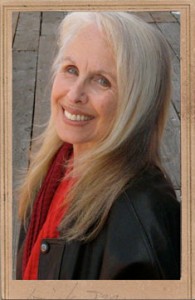 The Pleasure, Pain and Process of Audiobook Narration
The Pleasure, Pain and Process of Audiobook Narration
By Jane Singer
When Deb Smith and Deb Dixon asked if I’d be interested in producing and narrating an audiobook of Booth’s Sister, I jumped at the chance. It was my first novel and in many ways, the work of my heart. And as a professional actor with years of experience as a voiceover artist I thought narrating my novel would be yes, a challenge, but not terribly hard. Or so I thought. Turns out it was difficult, emotionally and physically exhausting but ultimately—with a bit of a brag here— I think it is the best work I’ve ever done.
John Wilkes Booth’s sister Asia spoke in the first person, telling the ragged, tragic story of a beloved brother who changed history with a single gunshot. In gasps and stutters, off-tune harmonies, snippets of Shakespeare and reveries, she tumbles through memories of a childhood of madness, betrayal and fierce love. Now I was to give her a voice, take her from the page to the ear. And produce, not just narrate. And be objective! I read the novel aloud over and over, trying to decide how much I should change my voice to be the numerous characters that people the book. Should I perform the characters in a completely different voice? Or would it be better to stay with Asia and let her “do” the characters? Finally, just before I went in for my first three-hour session, I made a decision. Asia would tell the reader/listener a story, a sister’s tale in her voice —mine really with a few tweaks—and become the various characters with some differentiation but without too much exaggeration.
Once I began to record, it felt right, really right. The sound engineer agreed, gave feedback, but really encouraged me to soar. “You are producing this,” he said, “there are no wrong choices. If you make a mistake, just stop and go back a few words.” We listened to playbacks of the first chapter over and over. It sounded good, truthful, and emotionally raw when it needed to be. I scheduled six more sessions, each one two to three hours, drank a lot of tea with honey before opening my mouth and kept telling myself I was on the right track. “You are the producer,” kept ringing in my ears.
Producing an audiobook means you are responsible for the whole package from laying down voice tracks—chapter after chapter—resulting in a final up-loadable product. I had two choices: record the book myself, or go to a studio and have sound engineers record, edit and master
A bit about these terms:
Recording? Yes, reading pages into a microphone in a soundproof setting. Kind of like talking to yourself, except you are talking to your reader.
Editing? Listening hard to what you’ve done, starting again if you make mistakes, taking out extra breaths, strange noises (stomach growling comes to mind), and ultimately having clean take after clean take.
Mastering? Well, this step is huge. Making sure sound levels are right and everything flows and matches. If you have to yell, cry or whisper (I did all of that) you don’t want the listener to be shocked, stunned, unable to hear or turned off.
I’m sure that narrators with far more technical prowess than mine can do just fine. But even with my super-sensitive home microphone and a trained voice, I did not feel qualified to produce a product that would satisfy me, and my listeners. Because in my profession I rely on booth directors to record a perfect sound quality for auditions and give strong, honest, objective feedback, I decided to use a studio here in Los Angeles and pay an hourly rate for their time and expertise. I made an investment in myself as an author, and an artist.
If you are voicing someone else’s book and do not have to micro-manage the other details or fall in love with your own prose ( a pitfall, a blessing or a curse in my case) the challenge is there, but because the words are not yours, I would imagine, and have heard, the pressure is less.
I hope Asia moves you. If so, we have succeeded.
http://www.audible.com/pd/ref=sr_1_1?asin=B0098OOIP2&qid=1349905807&sr=1-1



